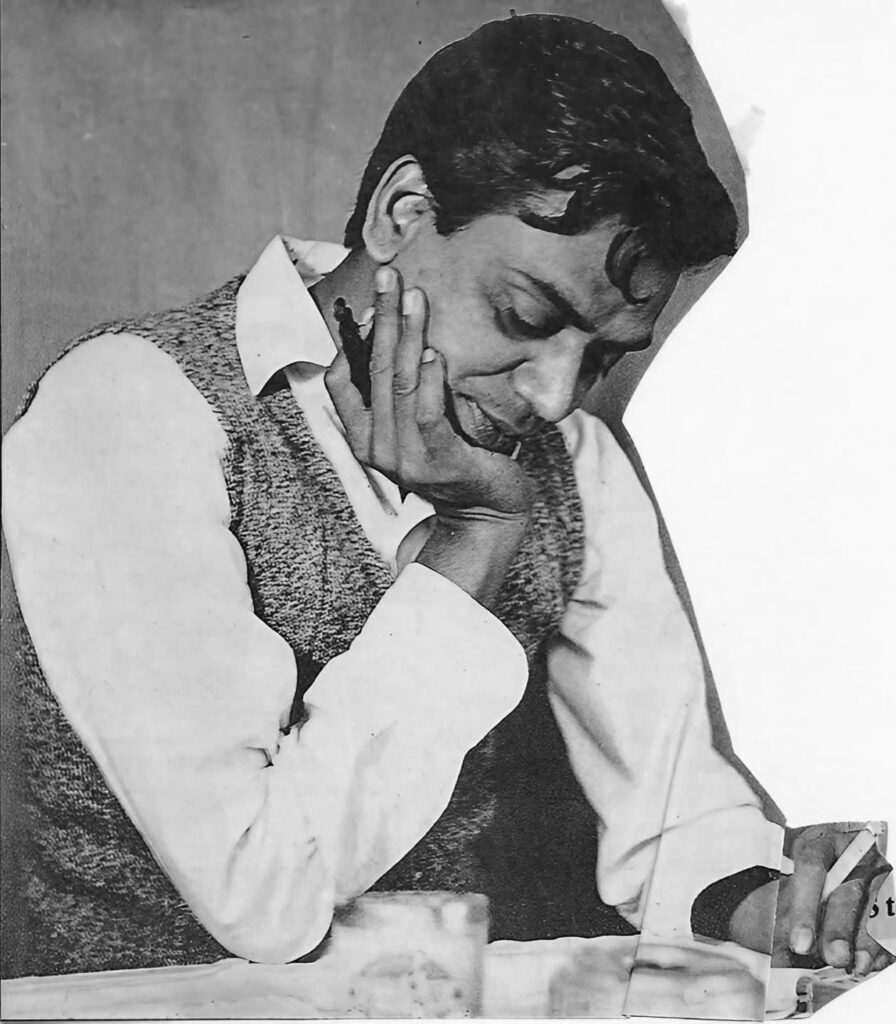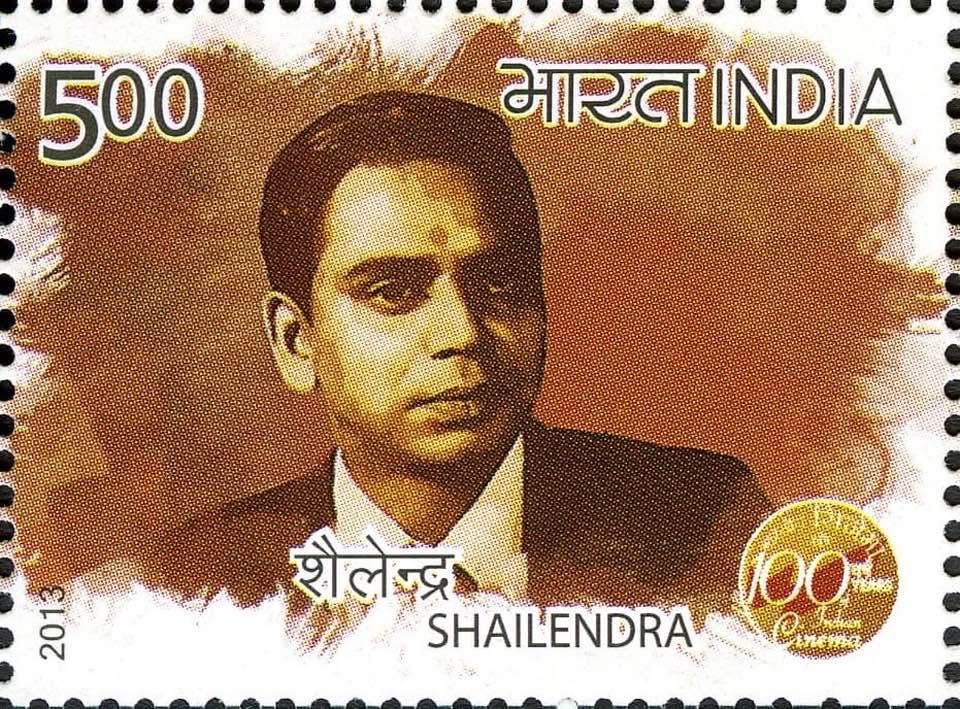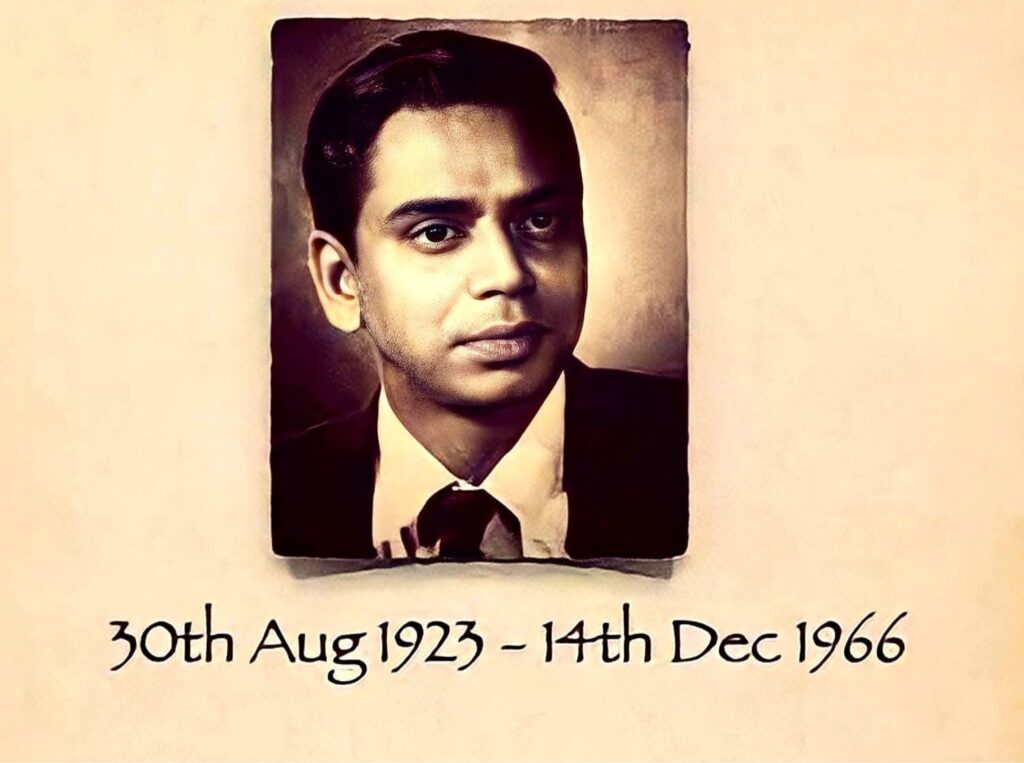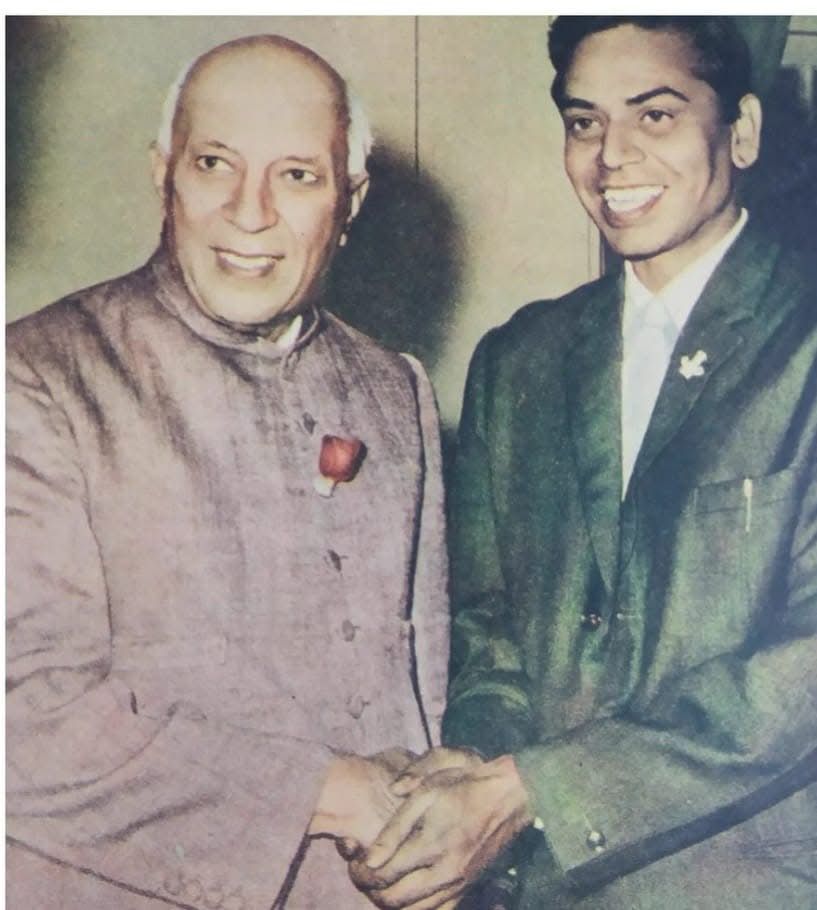
My humble tribute to one of the greatest poet-lyricists of all golden age of Hindi cinema: Shailendra, on his 102nd birth anniversary 30 August
A lyrical titan turns 102: Remembering Shailendra, Raj Kapoor’s ‘Pushkin’ and ‘Kaviraj’
*The immortal bard of Bollywood whose words still shape the soul of Indian cinema*
The Poet Who Gave Bollywood Its Heart

On 30 August 2025, we mark the 102nd birth anniversary of *Shailendra*-born Shankardas Kesarilal—whose poetic craft and sensitivity reshaped the very language of Hindi film lyrics, earning him affectionate epithets like ‘Pushkin’ and ‘Kaviraj’ from Raj Kapoor himself. For nearly two decades, Shailendra’s words articulated the passions, heartaches, and dreams of millions, entwining themselves with India’s post-Independence story.
Roots Grounded in Simplicity

Born on 30 August 1923, in Rawalpindi and raised in Mathura, Shailendra’s humble beginnings would anchor his empathetic outlook on the world. He arrived in Bombay—India’s cinematic capital—as an apprentice at the Indian Railways’ Matunga workshop in 1947. Against the backdrop of partition, communal strife, and social churn, young Shailendra poured his soul into poetry, his compositions steeped in the realities of common people.
The Making of ‘Kaviraj’: Raj Kapoor’s Discovery
It was destiny and his artistry that drew filmmaker Raj Kapoor to a mushaira where Shailendra recited his stirring poem “Jalta Hai Punjab”—a lament reflecting the trauma of partition. Though initially wary of Bollywood’s commercial sheen, Shailendra’s resolve softened when life demanded—his wife’s pregnancy prompting him to accept Kapoor’s offer for lyric work on *Barsaat* (1949). For ₹500, he penned “Patli kamar hai” and “Barsaat mein,” inaugurating a partnership that would define an era.
Kapoor affectionately dubbed him ‘Pushkin’ and ‘Kaviraj’—comparing his elegiac touch to the great Russian poet and John Keats, for Shailendra’s verses could evoke both unbridled joy and aching melancholy.
The Golden Triumvirate: Raj Kapoor, Shankar-Jaikishan, Shailendra
The chemistry between Raj Kapoor, composer duo Shankar-Jaikishan, and Shailendra remains the gold standard for Hindi film artistry. Movie after movie, their combined magic birthed immortal songs—most notably “Awara Hoon” from *Awaara* (1951), which resonated beyond India’s borders and became an anthem throughout the Soviet Union, China, and the Middle East, mirroring the universality of longing and striving. Shailendra’s lyrics were more than rhymes—they were philosophy, social commentary, and pure poetry.
A Song for Every Soul: Hits That Still Echo
Shailendra’s prolific output includes an enviable roll call of songs still beloved today:

– “Mera joota hai Japani” from *Shri 420* symbolized India’s confident, cosmopolitan spirit.
– “Aaj phir jeene ki tamanna hai” from *Guide* captured the liberation of the individual, in voice, verse, and theme.
– “Kisi ki muskurahaton pe dil nisar” from *Anari* expressed compassion’s highest ideals.
He penned songs for a dazzling array of films, collaborating with legends: Salil Chowdhury (*Madhumati*), S.D. Burman (*Guide*, *Bandini*, *Kala Bazar*), Ravi Shankar (*Anuradha*), and filmmakers like Bimal Roy, Dev Anand, and of course, Raj Kapoor.
Artistry Forged by Integrity
What set Shailendra apart was his unwavering commitment to honesty and depth. In a moving episode with Shankar-Jaikishan, he sent his friends a cryptic note after a missed promise:
“Chhoti Si Yeh Duniya, Pehchaane Raaste Hain. Kahin To Miloge, toh Poochhenge Haal.”
Recognizing their folly, the composers atoned by setting these lines to music—proving that Shailendra’s words could pierce both conscience and screen.
The Pain and Poetry of ‘Teesri Kasam’

Success, however, did not shield Shailendra from heartache. His great gamble—producing *Teesri Kasam* (1966), starring Raj Kapoor and Waheeda Rehman—earned the National Award for Best Feature Film. But its box-office failure devastated him emotionally and financially. The pressures of production, coupled with failing health and alcohol abuse, tragically claimed this poetic giant on 14 December 1966, at only 43 years old.
Legacy Carried Forward
Shailendra’s lyrical lineage continued as his son, Shaily Shailendra, became a lyricist too. In a moving act of homage, Shaily completed the iconic “Jeena Yahan Marna Yahan” for *Mera Naam Joker* (1970) after his father’s passing, honoring a promise to Raj Kapoor and perpetuating the Shailendra legacy.
Acclaim, Awards, and Enduring Influence
Shailendra’s genius was recognized in his own time, winning the Filmfare Best Lyricist Award three times for:
– “Yeh Mera Deewanapan Hai” (*Yahudi*, 1958),
– “Sab Kuch Seekha Hamne” (*Anari*, 1959), and
– “Main Gaoon Tum So Jao” (*Brahmchari*, 1968).
Famed lyricist Gulzar often hails Shailendra as the greatest lyricist in Hindi cinema history, a sentiment echoed by critics and fans. His simplicity, clarity, and unfailing humanity ensured his popularity never waned.
The Voice of the People
Shailendra wrote not just for stars and stories, but for the common man—the worker, the lover, the wanderer. Whether in the earthy optimism of “Suhana Safar Aur Yeh Mausam Haseen” or the philosophical heartbreak of “Ajeeb Dastan Hai Yeh,” his words continue to comfort, provoke, and inspire.
A Poetic Immortality
Fifty-nine years after his untimely passing, Shailendra’s legacy grows ever more luminous. Every time a song like “Awara Hoon,” “Jeena Yahan Marna Yahan,” or “Aaj Phir Jeene Ki Tamanna Hai” plays at a wedding, a radio, or a dusty road-side teashop, it is more than nostalgia—it is a celebration of the man whose pen scribed the anthem of our dreams.
On his 102nd birth anniversary, we remember *Kaviraj* not just as Bollywood’s John Keats, but as the beloved Pushkin who, with a simple verse, could heal, unite, and elevate the hearts of millions—a true legend whose words will never fade.
Hasnain Naqvi is a former member of the history faculty at St. Xavier’s College, Mumbai





